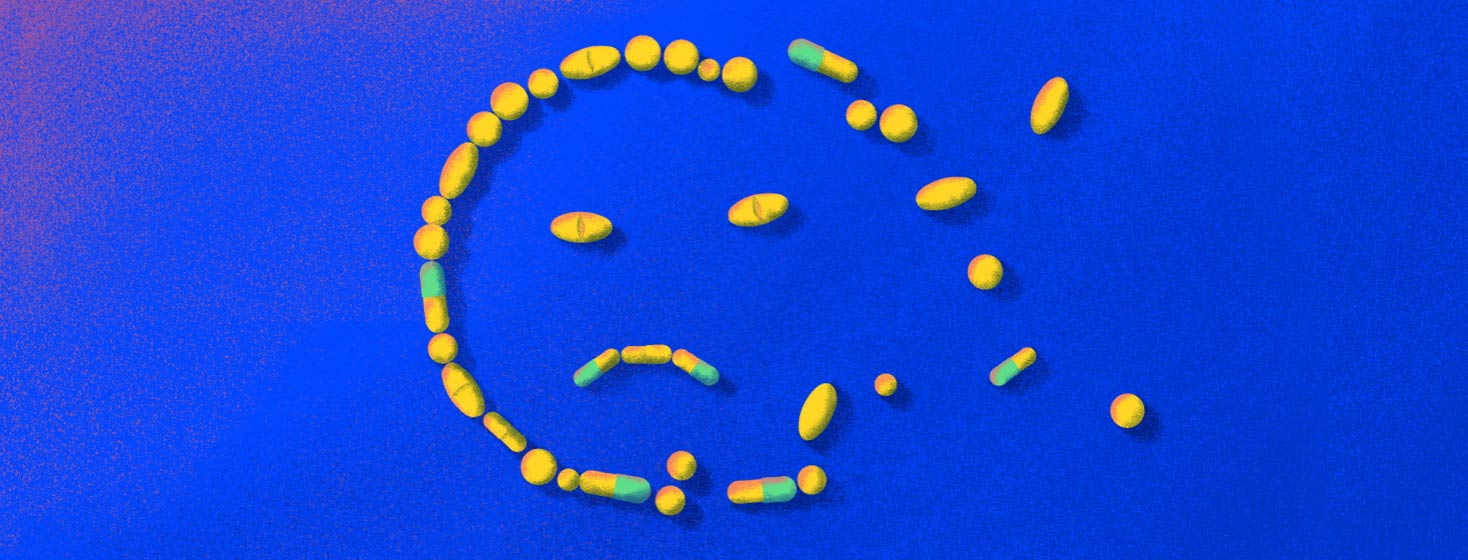Drugs and Vaccines to Avoid With Myasthenia Gravis
Myasthenia gravis (MG) is a rare disorder of the immune system. MG affects how some muscles and nerves communicate. Many people living with MG experience muscle weakness.1,2
Certain types of prescription and over-the-counter drugs can disrupt signals between nerves and muscles. These drugs may make muscle weakness worse for people with MG. Other drugs have been linked with worsening MG, but the reasons why are not understood.2,3
Talk to your doctor to learn about risk
Although problems have been documented for people with MG taking these drugs, every person is unique. Talk to your doctor about which drugs you may want to avoid with MG. If your doctor recommends you use a drug listed below, talk to them about the risks and your alternatives. Before starting any new medicine, talk to your doctor.2-4
Boxed warnings (do not use)
These drugs have a boxed warning, the strictest warning from the US Food and Drug Administration (FDA). That means the FDA recommends people with MG not use them at all. If you must use them, use extreme caution:2-6
- Fluoroquinolones: a class of antibiotics including ciprofloxacin, levofloxacin, and moxifloxacin
- Telithromycin: another antibiotic
Generally avoid
The FDA and many doctors recommend that people with MG not use the following drugs:2-6
Drugs for abnormal heart rhythms
Drugs like quinidine, procainamide, and disopyramide treat irregular heart rhythms. They may increase weakness or worsen MG.
Antimalarials
Chloroquine and quinine are malaria treatments and should be avoided. Hydroxychloroquine is a malaria treatment. It is used for Botulinum toxin
Movement disorders and migraine are sometimes treated with botulinum toxin (Botox®). Botox can be used for cosmetic reasons as well.
Drugs that affect breathing
Most people living with MG should avoid drugs that can slow breathing. These include benzodiazepines, opioids, muscle relaxants, and sedatives.
Penicillamine
Penicillamine is used for Wilson disease and sometimes for rheumatoid arthritis. It is strongly linked with causing MG.
Use with caution, if necessary
Generally, people with MG should not use the following drugs:2-6
Certain antibiotics
Some types of antibiotics including aminoglycosides and macrolides may worsen muscle weakness in MG. Experts recommend people with MG use these antibiotics if necessary. While taking, their MG symptoms should be closely monitored:
- Macrolides, including erythromycin, azithromycin, and clarithromycin
- Aminoglycosides, including gentamicin, neomycin, and tobramycin
Anti-seizure drugs
Some anti-seizure drugs – like phenytoin, phenobarbital, and gabapentin – may worsen MG symptoms. Monitor use.
Cancer immunotherapy
New cancer-fighting immunotherapy drugs could cause MG or make symptoms worse. These drugs include avelumab, ipilimumab, nivolumab, and pembrolizumab.
Contrast agents
In the past, some contrast agents with iodine were reported to sometimes make MG symptoms worse. Modern contrast agents with iodine used for X-rays and imaging appear safe. Use cautiously and monitor symptoms.
Desferrioxamine
Desferrioxamine is used as a therapy for hemochromatosis. It may worsen MG.
Hypertension drugs
Propranolol and other beta-blockers are used for hypertension (high blood pressure), heart disease, anxiety, and migraine. But they also may make MG worse. Calcium channel blockers, such as verapamil, may cause increased weakness. Monitor use.
Magnesium
Magnesium supplementation can be dangerous for people with MG. Use only if necessary and monitor symptoms.
Neuromuscular blockers and general and local anesthetics
Anesthesia is sometimes necessary. Some types of anesthesia can delay recovery for people with MG. Monitor use if needed.
Psychiatric medicines
Some psychiatric drugs like chlorpromazine and lithium may make MG worse. Use with caution.
Statins
Statins help lower cholesterol. Some statins are atorvastatin, pravastatin, rosuvastatin, and simvastatin. These drugs may worsen MG. Monitor use.
Steroids
Steroids are a standard treatment for MG. However, they may cause worsening symptoms if started at a high dose or used during an acute flare (exacerbation). Monitor use.
Immunizations and vaccines
Staying up to date with immunizations can minimize the risk of infectious disease. Vaccines can protect against severe disease that may worsen MG. Most vaccines are safe for people with myasthenia gravis. People with MG should talk to their doctor about the risks and benefits when considering taking some vaccines.2,7
This or That
Has your doctor mentioned these general risks with you before?
People who take drugs that suppress the immune system – like prednisone, azathioprine, or mycophenolate – should avoid most live vaccines. Live vaccines include:2,7
- Nasal flu spray
- Yellow fever vaccine
- A live polio vaccine (rarely used)
- A zoster vaccine (one type of vaccine used for shingles)

Join the conversation